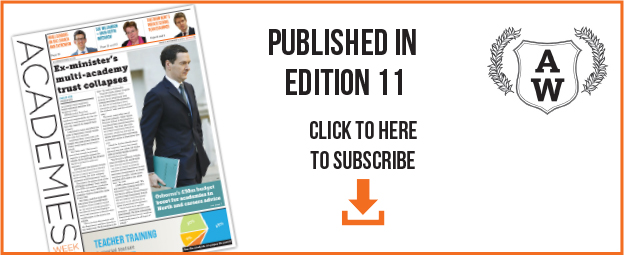Ofsted should be clear what constitutes extremism and how “British values” can be measured before inspectors start making judgments
There is a new duty on college and schools to prevent individuals being drawn into terrorism; organisations repeatedly inviting extremist speakers or failing in this duty will need to respond to ministerial directions.
The threat of radicalisation must be treated seriously and Church of England schools are committed to being part of the solution. But if schools are to be held to account on extremism, they need clear advice about how they can prevent young people being drawn in. More than just preventing extremist views, we need to promote a more positive vision. This means more high quality religious education, equipping children with critical skills and teaching pupils that those who advocate violence and hatred in the name of God are distorting their faith.
The first duty of government is to provide a safe environment for its citizens. It has every right to legislate to do so. However, the language when doing so should provide a clear understanding of extremism but not stigmatise deeply held belief. Understanding the difference between conviction and inciting hate, disrespect or even violent action will be key to the success of any proposed strategy.
It is into this uncertain ground that Ofsted is invited to tread. Over its 20 years, Ofsted has made a colossal contribution to improving England’s education standards, but what we are asking of the inspectorate today is very different to its original role.
At what point are schools responsible for what pupils watch and who they talk to?
Recent inspections suggest that Ofsted is increasingly required to make nuanced judgments about aspects of school life where there are few, if any, guidelines. This is an unreasonable expectation to place on inspectors and is unfair on schools if Ofsted hasn’t beforehand made clear what it is looking for. Without a major rethink, the credibility of Ofsted’s judgments will be quickly undermined and we will lose a valuable asset for the sector.
For many schools questions need to be asked about the role of Ofsted in “policing” and enforcing the new statutory duties proposed under Theresa May’s counter-terrorism bill. Who decides what is the “extremist” thought that children must be protected from? Who sets the benchmark? How will schools determine at what point they are responsible for what pupils watch and who they talk to; at home, on the bus, walking home? How do schools balance the emphasis on monitoring the Facebook pages and videos their pupils are accessing with the duty to teach breadth of curriculum? There will need to be a sense of scale and perspective in finding the answers to these and other associated questions.
Sir Michael Wilshaw, Ofsted’s chief inspector, recently expressed concern about the reliability of inspectors. At the same time, a number of schools have recently been threatened with or placed into special measures due to a range of concerns loosely grouped under the umbrella of “British values” – a concept that has not been thought through to deal with the complexities of our society.
In one case, Ofsted inspectors backtracked after criticising a rural primary school for failing to introduce pupils to ethnic diversity. This helps no one. The experience for schools marked down for not promoting “British values” is to subject them to a catch-all phrase without necessary clarity.
It matters how young people relate to each other, and see themselves in the world. It matters how we equip them to engage with what they see on Facebook or YouTube. This is just as important for tackling extremism as for addressing cyber-bullying. The health, happiness and curiosity of young people are fundamental.
Ofsted should focus on the breadth and quality of education provision. While it works out how it measures “British values” and schools wonder how they might be downgraded for failing to promote them, asking it to become the schoolroom security service is a step too far. We have access to both counter terrorism experts and educational professionals. Suggesting these groups swap roles in an attempt to build a safer society needs more thought.
A longer version of this piece is available here.
Nigel Genders is Chief Education Officer for the Church of England








Tackling radicalism and promoting more religion in schools? No. Get religion OUT of schools altogether and just promote critical thinking.